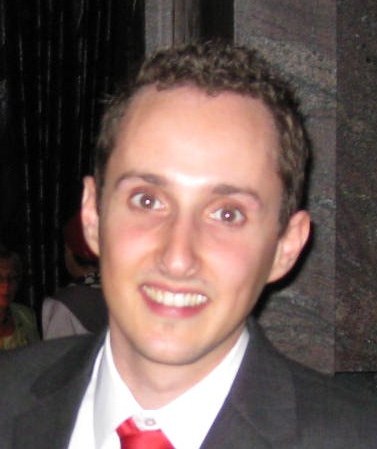Daniel Tilles, a PhD student in history at Royal Holloway, University of London, has co-edited a new collection of articles, Fascism and the Jews: Italy and Britain (Vallentine Mitchell, 2011).
Through comparative examination of the use of antisemitism by fascists in Britain and Italy between the wars, the book seeks to unravel some of the complexities of the relationship between fascism and antisemitism, as well of Jewish attitudes towards and experiences of fascism in the two countries.
Recently, Tilles answered the questions of SEN’s web team. His responses are below.
How did you get involved in editing this book?
In 2008, a fellow PhD student, Salvatore Garau, and I received funding from our university to organise a conference exploring the relationship between fascism and Jews in interwar Britain and Italy. The event was hosted at the Italian Cultural Institute in London and was a great success. Subsequently, we received various offers to publish the papers as a collection, with Salvatore and myself as editors. We eventually chose to do so with Vallentine Mitchell, producing both a special issue of the journal Holocaust Studies and a separate book.
How long did this book take to come together? What were your main challenges?
Having never previously undertaken anything like this, the whole process was quite a sharp learning curve. Initially, as it had just been a one-day conference, and a couple of the speakers were not able to contribute to the publication, we had to seek out some additional contributors, which took a little time. As we deliberately aimed to bring together a mix of experienced and early-career academics, as well as scholars from Italy and Britain, it was also an interesting challenge to shape the resultant variety of styles and approaches into a single, cohesive volume. As two extremely junior academics, it was also quite daunting to be editing the work of some established and respected scholars.
From the date of the conference until publication, the process took around two years.
What kind of relationships did you forge with the contributors to this volume?
Other than Salvatore, I only knew one of the contributors personally before the conference, so it’s been a great way to establish contact with others working in similar fields to myself.
Their contributions to the volume, and other contact I’ve had with them, has been a great influence on my own research. I’ve kept in touch with those involved, and a couple of them have been kind enough to provide me with references for job applications.
What do you hope students and researchers will get out of this book?
We hope that it will encourage greater interest and further research in these areas.
Surprisingly, given how closely fascism and antisemitism are associated with one another, there has been relatively little academic attention paid to the relationship between the two. And public perception of the issue is, understandably, influenced strongly by the image of the Nazis’ attitude towards Jews. We hope that the volume a) shifts some of the emphasis away from Nazi antisemitism and draws attention to the complexities of fascist attitudes towards minority groups, and b) begins to set out a new model of fascism’s exclusionary nationalism, applicable both to contemporary far-right extremism as well as the interwar period.
With regard to Jewish experiences of and attitudes towards fascism, again, we aim to depart from the impression that has resulted from a focus on Nazi history, of the Jews chiefly as victims. Italy and Britain provide very interesting case studies in this regard. In Italy, for example, there were numerous Jewish fascists before the introduction of racial laws in 1938, making Mussolini’s turn to antisemitism an unexpected betrayal as well as a threat to their well-being. And in Britain, the Jewish community far outnumbered fascist membership, so was able to take a variety of effective anti-fascist measures, ranging from physical confrontation on the streets to high-level collaboration with the authorities to restrict fascist activity.
A lot of excellent primary research has also gone into many of the contributions, revealing new sources that help challenge existing perceptions and shed light on previously unknown aspects of fascist and Jewish history.
What are you working on right now?
I’m currently writing up my PhD thesis, with the intention of finishing later this year. I’m researching the use of antisemitism by the British Union of Fascists and the ways in which the Anglo-Jewish community responded to it.
Where and in what conditions do you do your best research, editing and writing: at home, in the office, at the library, or elsewhere?
I research best in archives; editing and writing I tend to do at home or in the library.
If you had not gone into academic research, in what field would you have liked to work? Why?
Alongside History, my secondary specialisation at undergrad level was Psychology, and at the time I also worked as a special-needs care worker, so perhaps something related to those fields.
